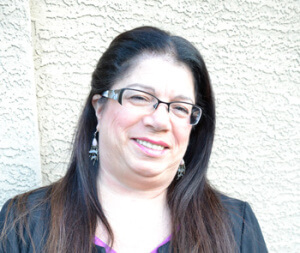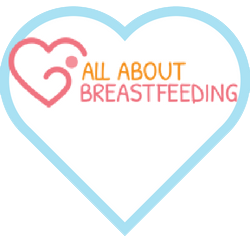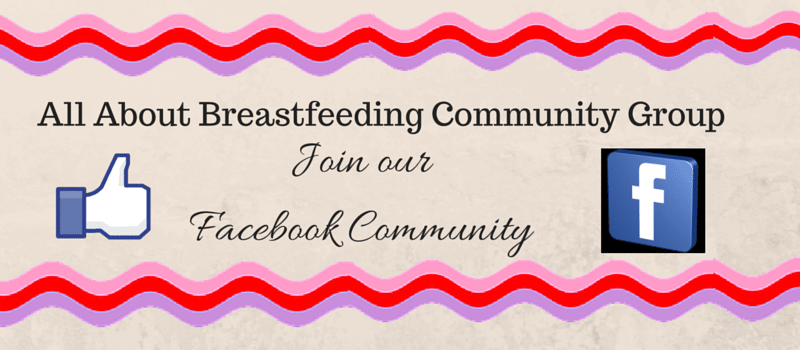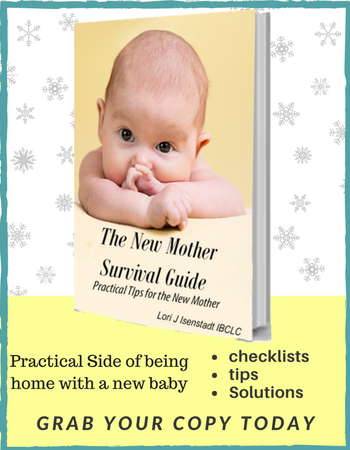Episode 364
Last week we all enjoyed my interview with Mariana Awkalani. Through her work as a midwife, she witnessed the significant effects of maternal emotional states on pregnancies, labor, birth and early baby care. Mariana saw that when pregnant and/or birthing women were dealing with high levels of fear and stress, this was likely to negatively impact their birth, postpartum and breastfeeding experience. This high level of stress in laboring moms meant they were more likely to get stuck at some points in labor, more likely to have more pain during their labor and this usually translated into her baby taking in this stress.
This could easily lead to breastfeeding difficulties as mom and baby are having a hard time relaxing. Not to be all gloom and doom, Mariana also noticed firsthand that a more relaxed, joyful and rooted emotional state for Mom and family consistently leads to significantly improved perinatal outcomes. She has made it part of her life’s work to help reduce and manage stress so that moms can have a peaceful pregnancy and look forward to a birth with a positive outlook. I am grateful for her work and will continue to refer moms to her that I feel are having problems moving forward because they are stuck – Mariana works her magic and helps moms and babies lose the tension and relax into motherhood and breastfeeding.
In addition to talking about ways to reduce mother’s stress during pregnancy and birth, Mariana mentioned reading Dr. Frederick Leboyer’s book, Birth Without Violence. She read this book long before I would expect any young person to be reading about babies and birth. Not only that – she “got it.” Through his words, she learned that babies can be stressed, they do feel pain and they can suffer, this book definitely left an impression on this pre-teen girls mind.
I read Birth Without Violence quite a few years ago and had not actually thought of Dr. Leboyers work in many years. Dr. Leboyer was a French obstetrician born in Paris France in 1918 and died in Switzerland in 2017 at the age of 98 years old. Thank goodness for his work and for his willingness to buck the system as he received a lot of flack from his colleagues. Because of his early work and the Leboyer Method, we have come far in the birthing community and have continued to make changes in birthing rooms all over the world with the goals of easing babies transition into this world.
Certainly there were others who wrote about birth and babies and what can be done to help both mom and baby make this a smooth transition, but Dr. Leboyer’s work was special. He wrote about seeing childbirth through baby’s eyes. What must birth be like for the baby?
He describes the sensations of sight, sound, and touch that babies encounter at the time of birth and remarked at how this was abrupt and insensitive to the babies needs. He talked about how these sensations for the baby was a stark contrast from their time floating around inside the womb.
Dr. Leboyer argued that babies feel pain, anxiety and suffering and that the manner in which they come into the world shapes the adults they will become. While he was not the first person to advocate for natural methods in childbirth, he did set himself apart by focusing primarily on minimizing the baby’s suffering.
Dr. Leboyer expanded my thinking about how babies come into this world. I thought about the births I had seen on TV and the births of a few friends I had witnessed at that point. These were bright lights and noisy birthing rooms babies are born into. The smells of the hospital rooms, the noises of the staff circling around the birthing mom, doors and drawers opening and closing, strangers walking in and out of the room, all kinds of beeps coming from machine. With all of this, I often felt that the worst time was shortly before the baby is born. Everyone gets excited when they can see the tiny mound of hair as the baby begins to show up. They want to help her get the baby out and all I hear are the loud voices of people telling mom to push as they counted to 10 with her, for each push. I have been in many labor rooms where moms are loudly told: Great Job! You are doing really good! Your almost there! Okay, go ahead, here comes another contraction… and then they start counting, loudly… from 1-10.
In response to this stressful event, Dr. Leboyer had thoughtful and purposeful suggestions such as quiet rooms, warm rooms and ones with dim lights. He also suggested that a newborn be laid on its mothers stomach and allowed to bond. He recognized that if mom and baby were fine, there was plenty of time to weigh and measure a baby. He suggested delaying cutting of the umbilical cord to allow for a smoother transition and shortly after the birth, he advocated for a warm bath and a gentle infant massage. All of this became known as “The LeBoyer method.”
I may have experienced births that were in noisy rooms and bright lights, but in Dr. Leboyers day, there was something else going on at births which thankfully, we see no more.
Babies were born and the hands they landed into, were the same hands that held them upside down and gave them a slap on their bottom. It use to be considered necessary to clear the babies lungs and airways and mouth of liquid and mucous. They felt this needed to happen in order to enable the baby to take its first breath and stimulate them to cry. This practice went by the wayside many years ago, but can you Imagine what it must have been like for babies to start off life this way. Leboyer took at look at this and other birth practices and went about changing how babies came into this world. Thank goodness such a practice as routinely holding a baby upside down and slapping their bottom has gone by the wayside.
We continue to evolve and the birthing community is committed to learning they can provide a more peaceful environment for moms to labor and birth in. Moms who had cesarean births use to not have any say in what happened to their baby immediately after birth – they were given a quick look and then the baby went straight to the warmer. Now, many physicians are providing more of a Family Centered Birth Experience in which the environment is taken into consideration. The operating room is calm and quiet. Care is taken to place medical items such as tubes and blood pressure cuffs and other monitoring equipment off to the side so that her baby to be placed directly on mom’s chest for some skin to skin time.
In my interview with Mariana she talked about the negative affects of being women being “tight”, being tense. Tightening up your muscles, works against a laboring women giving birth. She also talked briefly about how mom being tight can affect baby as well as how a tight baby can affect its ability to breathe well, to relax and breastfeed well. In his book, Birth Without Violence, Dr. Leboyer theorizes that newborns establish fixed breathing patterns the moment they are born and that without the ability to breathe freely, one cannot live freely. He attributes a lifetime pattern of relaxed breathing to a more serene environment during birth.
Has the conversation I had with Mariana caused you to contemplate how a baby feels during its birth? I wonder if it has sparked any conversations with your significant other about how the emotional and physical environment surrounding birth can have a profound and life-long effect on both mom and baby. In addition to what you are looking for from the birth, have you started to think about what you want for your baby?
Once I had been through my first birth, I recognized that I wanted to have more babies, but I did not to do it that way again. There were some aspects of my first birth that I desperately did not want to repeat again. I thought I knew what birth would be like going into it as I had taken classes. What I quickly realized is that I was basically taught how to be a good hospital patient, listen, pay attention and do what I was told. In between my 2 pregnancies, I spent quite a bit of time learning and figuring out what I thought was best for me and my baby. I made significant changes, which helped me have a birth experience that enabled me to feel cared for, listened to and allowed me to trust my body and go with the flow. All this definitely contributed to my having a completely different pp and breastfeeding experience – one in which I was calm, more relaxed and definitely was able to relish in the enjoyment of pain free breastfeeding.
Looking back on things, I had a wonderful and peaceful pregnancy, the birth – not so much. I am pretty sure that my early breastfeeding problems were more challenging because of what an uptight, anxious, sleep deprived new mother I was. When you peeked inside my window, you did not see a relaxed, happy, peaceful, pain free breastfeeding mother. I was wound up so tight & the awful thing is, that I had absolutely no idea at the time, just how uptight I was.
Let’s talk about you –
Knowing that a high stress level and a mom that is feeling very anxious and uptight can affect your experience of breastfeeding, What are some things you can do during pregnancy, the birth and early postpartum days to reduce your stress?
Let’s first talk about your pregnancy –
Seeking professional help to assist you in working through some challenges that you have had, well this is a great start. To be able to work though any past pregnancy and birth trauma, so you don’t let it affect your current birth, is highly recommended. One of my favorite things to do is to have a prenatal consult with moms who have experienced previous birth and breastfeeding trauma. Let me tell you something – talk therapy works wonders. Just getting all of this pent up fears helps to begin to unwind all the tension your are holding. We review what your experience was like, take a close look at what you can realistically change and put a plan into action so you can feel confident going into your next breastfeeding experience.
Perhaps this is your first pregnancy and you are finding yourself very anxious about the birth, you think about will you be able to handle the pain of childbirth? Will you be a good mother? Will you make enough milk for your baby? You have a whole host of “what ifs” that you carry around with you during the day and they seep into your unconscious when sleeping. Perhaps you suffered the loss of a loved one during your pregnancy. Right now you are being strong and are trying hard not to think too much about it, as you are trying your best to have a healthy pregnancy. All the feelings you are pushing aside now, are likely to make their presence known… fast and furious, once you give birth. Addressing these issues now is so important to your self care.
Please take care of yourself now so you are not hindered by these worrisome thoughts and past occurrences, during your current pregnancy and birth and postpartum period. Mariana said that she talks to the babies she works with. I think it is wonderful when moms actively talk to their baby. Paying attention to respecting and being kind to the baby growing within really helps you to connect with your baby and your feelings. When I was pregnant with all 3 of my babies, I spent a lot of time gently massaging my belly, gently nudging the baby as he grew, talking and singing to my babies. I felt close to them long before they were even in my arms. Talking to Mariana or another therapist who understands the birth process will help you work through your fears, you will be able to address your concerns and have someone on your side, helping to guide you along in the process. Knowing you are being well cared for and have a plan can really help reduce any stress that you are under.
Now let’s talk about the birth –
Think about your babies entrance into the world? What can you do to make this as peaceful as possible. What can you do to reduce birth trauma for you or your baby? It will help you to find out about the birth process and what happens in the first 24 hours after birth, in the facility where you are giving birth. Whether it be the hospital, a local birthing center, or even your own home, you will want to know what you can expect when it comes to providing a relaxed and calm environment.
Learning all you can about childbirth and choose your caregivers and place of birth wisely. How you birth absolutely affects how you feel afterwards and can affect your baby as well. You need to feel safe and well cared for. I have a whole series of recorded episodes which I encourage you to listen to. The focus is on your birth and how it affects your breastfeeding experience. I cover topics such as premature birth, pph. I also talk about the effects on where you give birth and who is with you during the birth and how this and any birth trauma can affect your breastfeeding experience. This Birth Matters series include episodes # 195, 197,199,201,203,205,207 and 209.
Next, I would like for you to think about the time of birth and the first 24 hours after birth as this is a significant time period which can greatly affect early breastfeeding.
What can you do to ease your babies transition? Learn all you can about the importance of skin to skin and set up your birth plan to include plenty of time to be with your baby. Discuss this topic with your partner so they can help you talk to family members and friends who all want to be at your birth. Are you okay with people waiting outside the doors, following you home, being in your home, and staying in your home. Too many people, too much commotion can take away your time with your new baby. It can make you wired and anxious and feel pressured to be the best and look your best. You know your personality best. All this is great, if this is what you want or if your thrive under these conditions. If you can feel your body tensing up, just listening to me talk about all this, well, you know there are things you need to work on before the birth.
Coming full circle to Dr. Leboyers work, I wanted to get you thinking about how your baby will experience the birth. I love looking at this through Dr. Leboyer’s lens. His focus was primarily on improving the quality of the birth experience for the baby. His message was that a sensitive, unobtrusive style of care which is deeply respectful of the natural process, and a peaceful atmosphere at the time of birth would help the baby to be born with a minimum of trauma.
His famous book and film ‘Birth Without Violence’ inspired mothers all over the world to want to give birth naturally and in a more quiet atmosphere. Birth Without Violence illustrates how to create an environment of tranquility in which to welcome our children: a relaxed mother, gentle lighting, soothing atmosphere, and a warm bath that mirrors the child’s prenatal surroundings. Dr. Leboyer’s simple techniques demonstrate how a birth without violence has far-reaching implications for improving the quality of human life physically, emotionally, and spiritually.
While we do know that preparing for your birth is not about figuring out how you can control your birth,because we have already established that you cannot control birth. The way I would like for you to prepare for birth is to clear up any worries and concerns you have about the birth so you go into your labor calm, relaxed and open to what will unfold. It is about connecting to any unresolved issues you have before your birth. This will enable you to labor easier by following your own intuition and accepting the professional guidance given to you by your caregivers.
If you are totally befuddled as to how to create a relaxed birth environment, I will tell you to KISS.
I will tell you to KISS. Don’t over think all that you need to do and have with you for the birth. Barring any unforeseen circumstances or medical complications, it is actually quite simple.
Your baby needs to begin his life outside your womb, being in comfortable and familiar territory, which is what he will get when he is being tucked in skin to skin.
Your baby needs you. Your baby needs to spend time skin to skin, smelling you, hearing your heartbeat, knowing your voice.
Any person or thing that is going to get in the way of a calm birth environment or get in your way of spending optimal time with your baby after the birth, needs to be removed. It doesn’t matter if Aunt Susan is your mother’s favorite sister. If she rubs you the wrong way, you don’t want her in your room, then don’t.
A happy and relaxed laboring women will be more open to being flexible and allowing her birth to unfold as it needs to be. A relaxed new mother will be able to ease into breastfeeding without being hindered by unresolved trauma.
I am happy that I took this opportunity to expand a little bit on my previous show with Mariana. I thought I would end this episode with a few quotes and affirmations as you look forward to your gentle birth –
I deserve a natural birth
I am relaxed and calm
In this moment, everything is okay
I am choosing love, not fear
I feel confident. I feel safe
breathe in strength, breathe out tension
Your Online Breastfeeding Class
Learn how to breastfeed – Be comfortable. Be confident.
The learning continues well beyond the average breastfeeding basics class that is 60-90 minutes. In this class, we have over 15 hours of audio lessons, combined with many hours of videos to help support what you are learning. We cover breastfeeding and medication safety, what to do if your baby does not latch on, common breastfeeding challenges, tongue tie, premature babies, building a good supply, returning to work and pumping. Take a look at the list below and follow the link to the class page so you can see more specifics of what is covered. I want to ensure that we got you covered and that you have great support well beyond the newborn days.
- Using your pregnancy time to prepare for breastfeeding
- Tips on how to prepare your home for a newborn
- Specific details about the first 24 hours after birth.
- Exactly what to expect the first two weeks after birth
- What can you do if your baby is not latching on
- Common and not so common breastfeeding challenges
- What you can expect over the next few months
- Returning to work as a breastfeeding/pumping mom
- Pumping and storing your milk
- When to begin pumping and building your freezer stash
- How to make a smooth transition to postpartum life
- Lessons dedicated to partners and breastfeeding knowledge.
- Breastfeeding and the 1 year old
- Breastfeeding the toddler and beyond
- Tandem nursing
- Breastfeeding through a pregnancy
- Medication and mother’s milk
- Weaning
Once you register for the class, you have immediate access to:
- Audio Lessons
- Videos
- Educational handouts
- Helpful checklists
- Our “members only” group
- Weekly group LIVE Q&A sessions
Gain confidence in breastfeeding.
Expert advice from Lori J. Isenstadt, IBCLC who has over 25 years of experience in maternal health and lactation. I will help you navigate the ins and outs of breastfeeding.
Listen anywhere and anytime. Imagine not having to sit in a classroom or stare at a screen. You can learn all about breastfeeding while going for a walk, driving to work or running errands, traveling on a plane, train or bus. Because you can download the audios, learning is easy and convenient. Get ready to learn anytime whenever it’s convenient for you and your partner. You can be cooking dinner together and listening to the class. Perhaps relaxing together in the evening in your comfy clothes. You can learn together. Easy access to all class materials. Your class never expires. You’ll be able to listen and download the materials at your convenience.
You are not alone!
Once you are a student in the breastfeeding class, you have regular access to ongoing support for the whole time you are breastfeeding. You can have your questions answered by Lori J. Isenstadt, IBCLC, in our private group as well as our weekly live Q & A sessions. Just check out the Bonuses below to see how I provide you with ongoing support..
Exclusive Bonus #1
Immediate access to a private group for class students only. I will be answering your questions 5 days a week.
Exclusive Bonus #2
Invitation to join our weekly Q & A session with Lori and other students.
Exclusive Bonus #3
Need additional help? *25% discount off a private consult – for students only.
*If you are in the Phoenix metro area. use this link to schedule your Office or Home lactation consult.
*If you are out of the area, use this link to schedule a Skype call
Do you have a question about the class before you purchase? Send it to – aabreastfeeding@hotmail.com
 Register for the Breastfeeding class
Register for the Breastfeeding class
http://www.aabreastfeeding.com/breastfeedingclass
Additional ways to connect with me:
Like us on Facebook HERE:
http://bit.ly/2dNPlsC
Follow us on Twitter HERE:
@breastfeedingaz
http://bit.ly/2BfEIJ2
Follow us on Pinterest HERE:
https://www.pinterest.com/lorijisenstadt
Subscribe on iTunes the All About Breastfeeding show HERE:
https://apple.co/2FJGwsV
Lori J. Isenstadt, IBCLC
 Lori Jill Isenstadt, IBCLC is a huge breastfeeding supporter. She has spent much of her adult life working in the maternal health field. Once she became turned on to birth and became a childbirth educator, there was no stopping her love of working with families during their childbearing years. Lori became a Birth doula and a Postpartum doula and soon became a lactation consultant. She has been helping moms and babies with breastfeeding for over 25 years. Lori founded her private practice, All About Breastfeeding where she meets with moms one on one to help solve their breastfeeding challenges. She is an international speaker, book author and the host of the popular itunes podcast, All About Breastfeeding, the place where the girls hang out. You can reach Lori by email at: [email protected] or contact her via her website: allaboutbreastfeeding.biz/contact
Lori Jill Isenstadt, IBCLC is a huge breastfeeding supporter. She has spent much of her adult life working in the maternal health field. Once she became turned on to birth and became a childbirth educator, there was no stopping her love of working with families during their childbearing years. Lori became a Birth doula and a Postpartum doula and soon became a lactation consultant. She has been helping moms and babies with breastfeeding for over 25 years. Lori founded her private practice, All About Breastfeeding where she meets with moms one on one to help solve their breastfeeding challenges. She is an international speaker, book author and the host of the popular itunes podcast, All About Breastfeeding, the place where the girls hang out. You can reach Lori by email at: [email protected] or contact her via her website: allaboutbreastfeeding.biz/contact

Submit a comment
your email address will not be published








